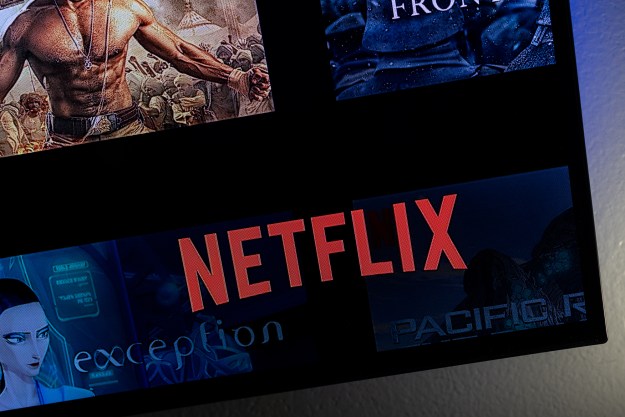
After reaching an all-time record high last month, share’s for Netflix dropped by around 26 percent today, to near $331. In its letter to investors, Netflix blamed its slowed subscriber growth over the last three months on the company’s price hike of $1 per month, announced in April. While Netflix’s earnings show it added around 3 million new subscribers overall, it had forecast the addition of 3.69 million.
By the numbers, Netflix’s quarterly reports show an addition of 980,000 members domestically, and 2.04 million internationally, which were low enough to send shareholders running for the door in after-hours trading. On the bright side, the company reported better-than-expected earnings of 96 cents per share, or $59 million, thanks in part to the rise in subscription fees. Netflix had predicted a profit of just 89 cents per share.
Netflix said the second season of its breakout hit Orange is the New Black helped keep the rate increase from further affecting profits, claiming the enthusiastic reception for the show offset the price hike “for about two months.” The service also said its new animated series BoJack Horseman drew more viewers in the first weeks of inception than many out-of-house animated series it has licensed, such as Archer, Futurama, and Bob’s Burgers.
Regardless of missing expectations when it comes to pulling in new subscribers, Netflix has showed clear dominance in the streaming space up to this point, with Amazon, and Hulu playing perpetual catchup. Boasting more than 50 million subscribers across the globe, Netflix said it doesn’t see those services, competitors like TV Everywhere apps from cable companies, or even piracy as major threats, claiming its retention in the U.S. is as “strong as ever.”
As for HBO’s forthcoming move to online streaming, Netflix claimed the two services should have no trouble co-existing in the rapidly expanding cord-cutter space.
“Starting back in 2011, we started saying that HBO would be our primary long-term competitor, particularly for content.” Netflix said in its letter to shareholders. “The competition will drive us both to be better. It was inevitable and sensible that they would eventually offer their service as a standalone application. Many people will subscribe to both Netflix and HBO since we have different shows, so we think it is likely we both prosper as consumers move to Internet TV.”
As more and more people look for a broader range of content away from the grips of cable and satellite packages, that may very well be true. That said, few would argue that today’s win goes to the opposition.
Editors' Recommendations
- How many screens can you stream Disney+ on?
- The streaming services will continue to nickel-and-dime us all — because they can
- (HBO) Max free trial: Can you stream for free in 2024?
- New My Netflix tab looks to make streaming on the go a bit easier
- Netflix speed test: how to check if you can stream 4K Ultra HD


